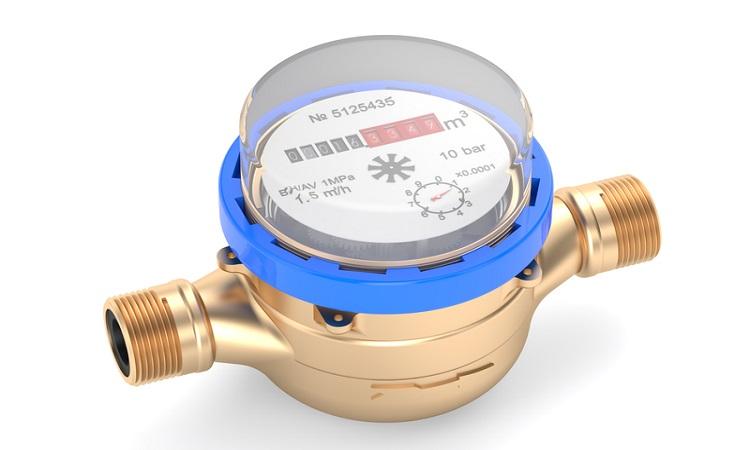Commercial Smart Water Meter market Gains from Utility Optimization

Commercial Smart Water Meter market is growing due to rising water management needs, tech advances, and strict regulatory mandates driving adoption worldwide.
According to the latest report by TechSci Research titled “Commercial Smart Water Meter Market – Global Industry Size, Share, Trends, Competition Forecast & Opportunities, 2030F,” the global commercial smart water meter market was valued at USD 2.56 billion in 2024. The market is projected to grow at a robust CAGR of 15.28% and reach USD 6.06 billion by 2030. This surge in demand is primarily driven by increasing regulatory requirements, technological advancements, and the growing emphasis on efficient water resource management across commercial sectors.
Drivers of Market Growth
Governments across the globe are introducing stricter regulations and water conservation mandates to address the growing challenges of water scarcity and inefficient resource use. These regulatory pressures are pushing both public and private sectors to adopt smarter solutions for water monitoring and management. Commercial smart water meters, with their ability to provide precise, real-time data on consumption, are emerging as a critical tool in this transformation.
The benefits of these smart devices go far beyond compliance. By enabling real-time leak detection, more accurate billing, and usage analytics, commercial smart water meters improve operational efficiency for both utility providers and end users. Businesses can optimize water usage, reduce waste, and lower operating costs, while utilities can streamline maintenance and billing systems.
Integration of IoT and Advanced Technologies
The integration of smart meters with Internet of Things (IoT) technologies is revolutionizing the commercial water metering landscape. IoT-enabled smart meters allow for remote monitoring and data transmission, eliminating the need for manual meter readings and enabling predictive maintenance. These smart systems also provide detailed insights into consumption trends, helping utilities and businesses forecast demand, prevent system overloads, and optimize water distribution infrastructure.
As the cost of sensors and wireless communication technologies like LoRaWAN and NB-IoT continues to decrease, the commercial viability of smart meters is becoming more widespread. This affordability, combined with the growing digital transformation in the utilities sector, is fostering widespread adoption of smart metering solutions in commercial applications such as retail, hospitality, and manufacturing.
Rise of Smart Cities and Sustainability Goals
The global push toward smart city development is a significant tailwind for the commercial smart water meter market. Smart cities prioritize the use of connected technologies to enhance urban management, and smart water metering is a crucial component of these systems. In such settings, commercial smart meters not only help manage water usage but also contribute to broader sustainability goals by supporting energy efficiency, reducing carbon footprints, and encouraging environmentally conscious practices.
The growing focus on sustainability among businesses and institutions is also influencing market dynamics. As organizations seek to meet ESG (Environmental, Social, and Governance) goals and align with green building standards, smart water meters offer a practical solution. Their real-time monitoring capabilities support efficient water usage, reduce utility expenses, and help maintain environmental compliance.
Explore Over XX Market Data Figures Spread Across XX Pages in the In-Depth TOC of the “Global Commercial Smart Water Meter Market”
https://www.techsciresearch.com/report/commercial-smart-water-meter-market/28380.html
Segment Analysis: Hot Water Meters Lead Market Share
By product type, the Hot Water Meter segment held the largest share of the global commercial smart water meter market in 2024. This dominance is driven by the rising demand for efficient water and energy use in commercial buildings and industrial facilities. As energy costs rise and environmental concerns mount, businesses are placing greater emphasis on managing hot water consumption effectively.
Smart hot water meters provide accurate data on water usage and temperature, helping businesses identify inefficiencies, detect leaks early, and reduce energy expenditures. With these meters, organizations can align their operations with sustainability goals, enhance resource efficiency, and comply with evolving environmental regulations.
IoT integration further strengthens the appeal of smart hot water meters by enabling remote monitoring and automation. This reduces the need for manual checks, improves data accuracy, and allows predictive analytics to forecast consumption patterns and maintenance needs. The compatibility of these meters with other smart building systems also supports greater digitalization, making them an integral part of energy-efficient commercial infrastructure.
As regulatory bodies impose stricter efficiency standards, and as businesses seek to minimize environmental impacts, the demand for smart hot water meters is expected to grow steadily. Enhanced communication technologies and growing awareness of the benefits of water-energy nexus management will continue to drive this segment’s expansion.
Regional Insights: Asia Pacific Leads in Growth
The Asia Pacific region is emerging as the fastest-growing market for commercial smart water meters. Rapid urbanization, population growth, and industrial expansion across countries such as China, India, and Japan are increasing the demand for intelligent water management solutions.
Many urban centers in the region face acute water stress, prompting governments and private enterprises to prioritize water conservation. Smart water meters are becoming indispensable in this effort, helping to monitor usage, minimize losses, and ensure sustainable resource distribution. The adoption of smart technologies aligns with broader national and regional smart city initiatives, which often include infrastructure upgrades like the deployment of IoT-enabled utilities.
Infrastructure investments in Asia Pacific are accelerating the installation of smart water meters, supported by favorable policy frameworks and the expansion of digital communication networks. Countries are embracing advanced metering technologies not only to meet regulatory standards but also to enhance operational efficiency and customer service across commercial sectors.
Moreover, the growing affordability of smart water meters and improved
- Art
- Causes
- Crafts
- Dance
- Drinks
- Film
- Fitness
- Food
- Παιχνίδια
- Gardening
- Health
- Κεντρική Σελίδα
- Literature
- Music
- Networking
- άλλο
- Party
- Religion
- Shopping
- Sports
- Theater
- Wellness
- Travels

